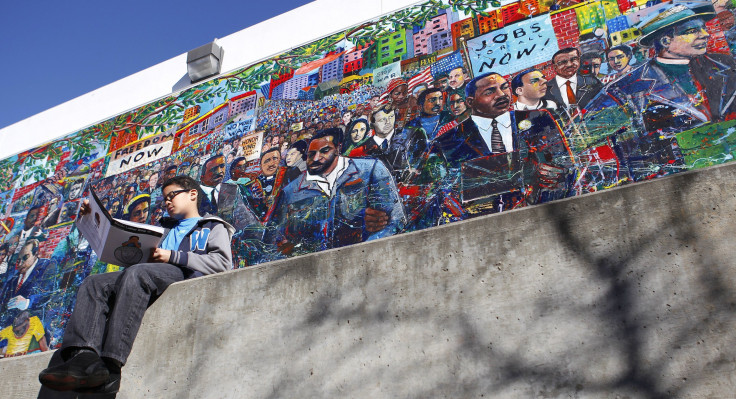Black History Month: 6 Facts About The Origins Of The Black History Celebration

Every February, people across the nation celebrate Black History Month with lectures, parades, award ceremonies and numerous other events, all aimed at preserving and highlighting the immeasurable contributions of African-Americans to U.S. history.
But how much do you know about the origins of the celebration? Below we've gathered six important facts about Black History Month.
1. Black History Month Started As A Weeklong Celebration
In September 1915, historian Carter G. Woodson and the Rev. Jesse E. Moorland founded the Association for the Study of Negro Life and History. The organization’s goal was to identify and promote the accomplishments of Americans of African descent. In 1926, the organization sponsored a national Negro History Week, with the celebration falling in the second week of February, according to the Library of Congress site dedicated to Black History Month. This period was chosen to coincide with the birthdays of both Abraham Lincoln and Fredrick Douglass.
In response to the newly created Negro History Week, numerous schools and community groups across the country organized performances, lectures and other events to recognize and promote the achievements of black Americans. Over the coming decades, mayors across the nation began issuing local proclamations for annual Negro History Week celebrations. The ASNLH is now known as the Association for the Study of African American Life and History.
2. By The 1960s, Negro History Week Had Largely Evolved Into A Monthlong Celebration
In the 1960s -- with the added influence of the civil rights movement -- several college campuses, schools and communities across the U.S. had expanded Negro History Week into Black History Month.
3. Black History Month Was Officially Recognized In 1976
In 1976, President Gerald R. Ford officially recognized Black History Month, calling it a moment for the public to "seize the opportunity to honor the too-often neglected accomplishments of black Americans in every area of endeavor throughout our history." The year before, Ford issued a message of observance of Black History Week, in which he requested that all Americans "recognize the important contribution made to our nation's life and culture by black citizens." Since 1976, the month of February has been recognized by every president as Black History Month.
4. Every Year Has A Theme
Since 1928, every Black History week or month has had a theme that recognizes pivotal events or topics that should be highlighted during the year's celebration. The 2013 theme -- "Crossroads of Freedom and Equality: The Emancipation Proclamation and the March on Washington" -- recognized the 150th and 50th anniversaries of those key events in black American history. The theme for 2014 is “Civil Rights in America.”
In his presidential proclamation for Black History Month 2014, President Barack Obama said the following.
As we pay tribute to the heroes, sung and unsung, of African-American history, we recall the inner strength that sustained millions in bondage. We remember the courage that led activists to defy lynch mobs and register their neighbors to vote. And we carry forward the unyielding hope that guided a movement as it bent the arc of the moral universe toward justice. Even while we seek to dull the scars of slavery and legalized discrimination, we hold fast to the values gained through centuries of trial and suffering.
5. The Observance Isn't Technically Called "Black History Month"
In his 1996, President Bill Clinton issued Presidential Proclamation 6863 for "National African American History Month." This differs from previous presidents' proclamations for "National Black (Afro-American) History Month"-- including those made by President Jimmy Carter and President George H.W. Bush's 1991 proclamation. In earlier proclamations, the words African-American and black were often interchanged. But every president since 1996 has proclaimed February simply as "National African American History Month."
6. The United States Isn't The Only Country To Celebrate Black History Month.
Canada and the United Kingdom also have annual Black History Month celebrations. Like the United States', Canada's falls in February. But the U.K.'s occurs in October.
© Copyright IBTimes 2024. All rights reserved.






















